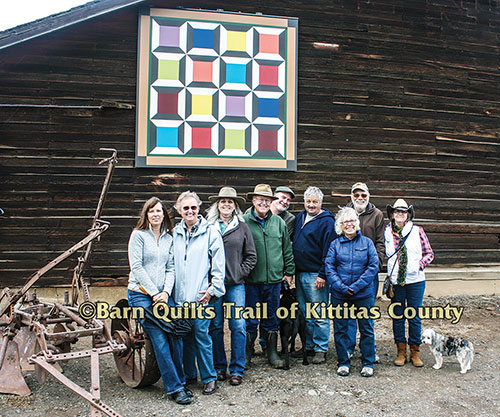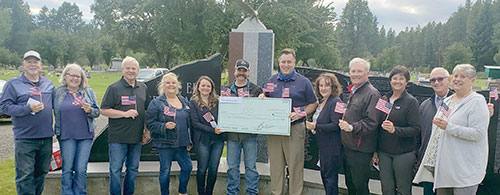Updated Dec. 26 – Stage 1 burn bans extended in 9 Eastern Washington counties
YAKIMA- The Washington Department of Ecology (Ecology) continued the Stage 1 burn ban in Kittitas, Chelan, Douglas, Okanogan, Ferry, Stevens, Pend Oreille, Asotin and Walla Walla counties. Smoke dispersion is expected to remain poor through the weekend, though temporary clearing is possible in some areas. The burn ban, which began Tuesday, will continue until at least 4 p.m., Monday, Dec. 30. Under a Stage 1 ban, the use of uncertified wood-burning devices – including fireplaces, wood stoves and inserts – is prohibited unless they are a home’s only adequate source of heat.
Uncooperative conditions call for burn bans in 9 Eastern Washington counties
YAKIMA- Unpromising weather forecasts are prompting the Washington Department of Ecology to call Stage 1 burn bans for Kittitas, Chelan, Douglas, Okanogan, Ferry, Stevens, Pend Oreille, Asotin and Walla Walla counties, beginning at 4 p.m. on Tuesday, Dec. 24.
“A ridge of high pressure is expected to set up Christmas day onward, leading to light winds and poor dispersion,” said atmospheric scientist Ranil Dhammapala, with Ecology’s air quality program. “Typically a lot more woodstoves and fireplaces are used during holiday festivities. Unfortunately, the weather isn’t helping to prevent smoke from pooling in these communities. So steps need to taken to reduce wood burning activities.”
Dispersion is expected to worsen over Christmas and lead to poor air quality later in the week.
Ecology’s Stage 1 burn bans for the nine Eastern Washington counties will continue at least until 4 p.m. on Friday, Dec. 27, when they could be called off or extended. The Stage 1 bans apply to the use of uncertified wood-burning devices (including wood stoves, inserts and fireplaces) and to all outdoor burning. Certified wood-burning devices were built after 1990.
All outdoor burning – including residential, agricultural and forest burning – is prohibited.
Under a Stage 1, ban the use of uncertified wood-burning devices – including fireplaces, wood stoves and inserts – is prohibited unless they are a home’s only adequate source of heat.
Certified wood-burning devices and pellet stoves are allowed. Ecology recommends burning hot fires using only clean, dry wood. No excessive smoke is allowed from any wood-burning device beyond a 20-minute start-up.
By limiting burning and following restrictions when burn bans are called, residents can help improve air quality sooner.
Ecology’s burn bans do not apply on tribal reservations, where the U.S. Environmental Protection Agency has jurisdiction.
Burn ban violators are subject to civil penalties. You can report violators by calling Ecology’s smoke complaint hotline (1-866-211-6284). For burn ban updates, go online to www.waburnbans.net.
Smoke from outdoor burning and wood-burning devices builds up where cold air is trapped near the ground. Fine particles in smoke are so small they can easily get into your lungs. Once there, they can cause heart and breathing problems, and even death. Children, people with asthma and respiratory illnesses, and adults older than 65 are most at risk.
A 2009 Ecology analysis estimates that fine particles contribute to about 1,100 deaths and about $190 million in health-care costs each year in Washington.
The Washington State Department of Health recommends that people who are sensitive to air pollution limit time spent outdoors, especially when exercising. Air pollution can trigger asthma attacks, cause difficulty breathing, and make lung and heart problems worse. Air pollution is especially harmful to people with lung and heart problems, people with diabetes, children, and adults over age 65.
You can track air quality in your area by using the Washington Air Quality Advisory (WAQA). This is Ecology’s tool for informing people about the health effects of air pollution, including fine particles. It uses color-coded categories to show when air quality is good, moderate or unhealthy.
For more information about WAQA, see this Ecology fact sheet.





